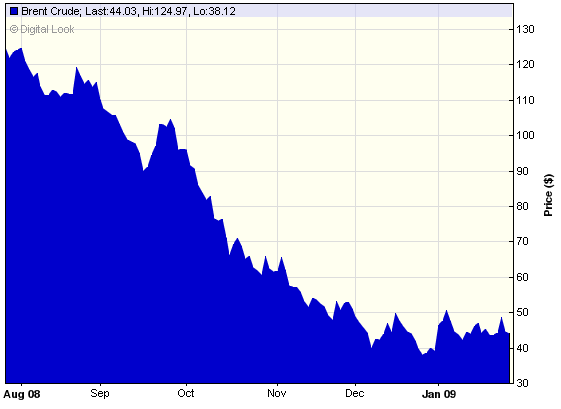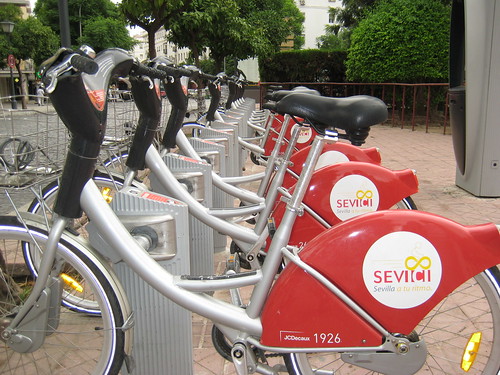
Brent Crude price Aug 08 – Jan 09
Chart generated by thisismoney.co.uk
Posts on The Oil Drum and iStockAnalyst in the last couple of days point out something interesting.
From The Oil Drum’s post:
Nobuo Tanaka, the head of the International Energy Agency (IEA) said today…
Oil at near $40 a barrel has slowed investment in oil projects, he told Reuters, raising the possibility of a supply shortfall once demand resumes.
“The current price level has a negative impact on investment in new oilfields,” Tanaka said on the sidelines of the World Economic Forum in Davos.
“We are concerned about slowdown, slippage, cancellation of projects. When demand comes back, we may have a supply crunch,” He added.
And from a post on iStockAnalyst a few days earlier:
A massive slump in oil exploration spending pummeled Schlumberger Ltd. (SLB), the world’s largest oilfield services corporation, as profit fell 17% in the fourth quarter. But the company said curtailed spending could be setting the stage for a rebound in oil and gas prices as supplies dwindle.
Schlumberger is pulling back as a collapse in petroleum prices led to a sharp drop in exploration spending by its customers.
So the current low oil prices mean oil exploration and investment in new oilfields is being cut back. Because of the inelasticity of the demand and supply curves for oil, this means when the world economy (and demand for energy) starts to ramp up again we are in for another price shock, like the one we saw in 2008.
With the next shock though we will have depleted that much more of the world’s finite supply, and the lack of investment in exploration means that the next oil shock will require an even bigger global recession for the price to fall back down once more. How likely is that?
With respect to time frames, this recession has at least another year to run, I suspect, before demand starts back up again. So another oil shock in 2010?
Perfect! Just in time for the launch of many of the new battery electric, and plug-in hybrids by the mainstream motor manufacturers!

